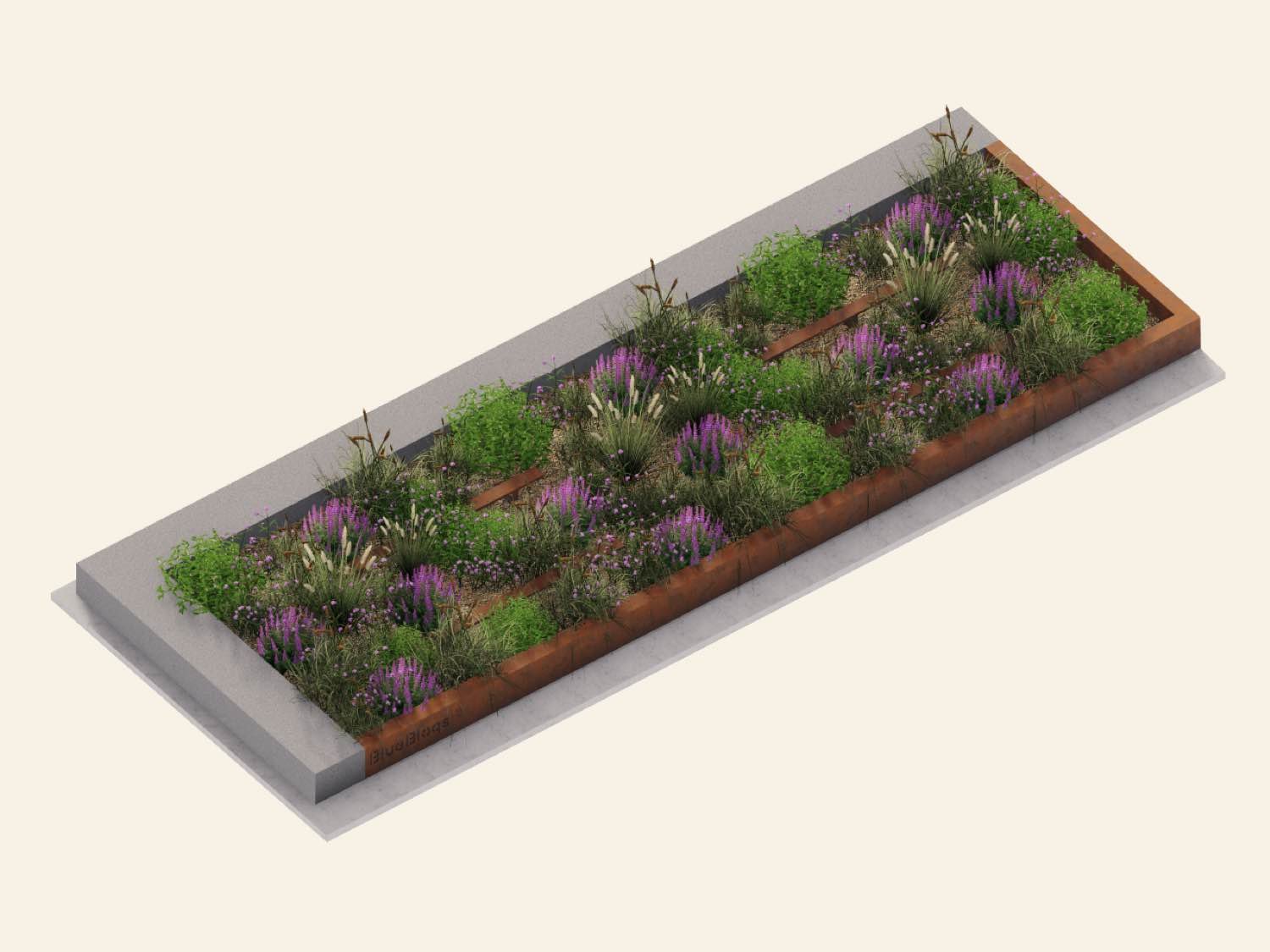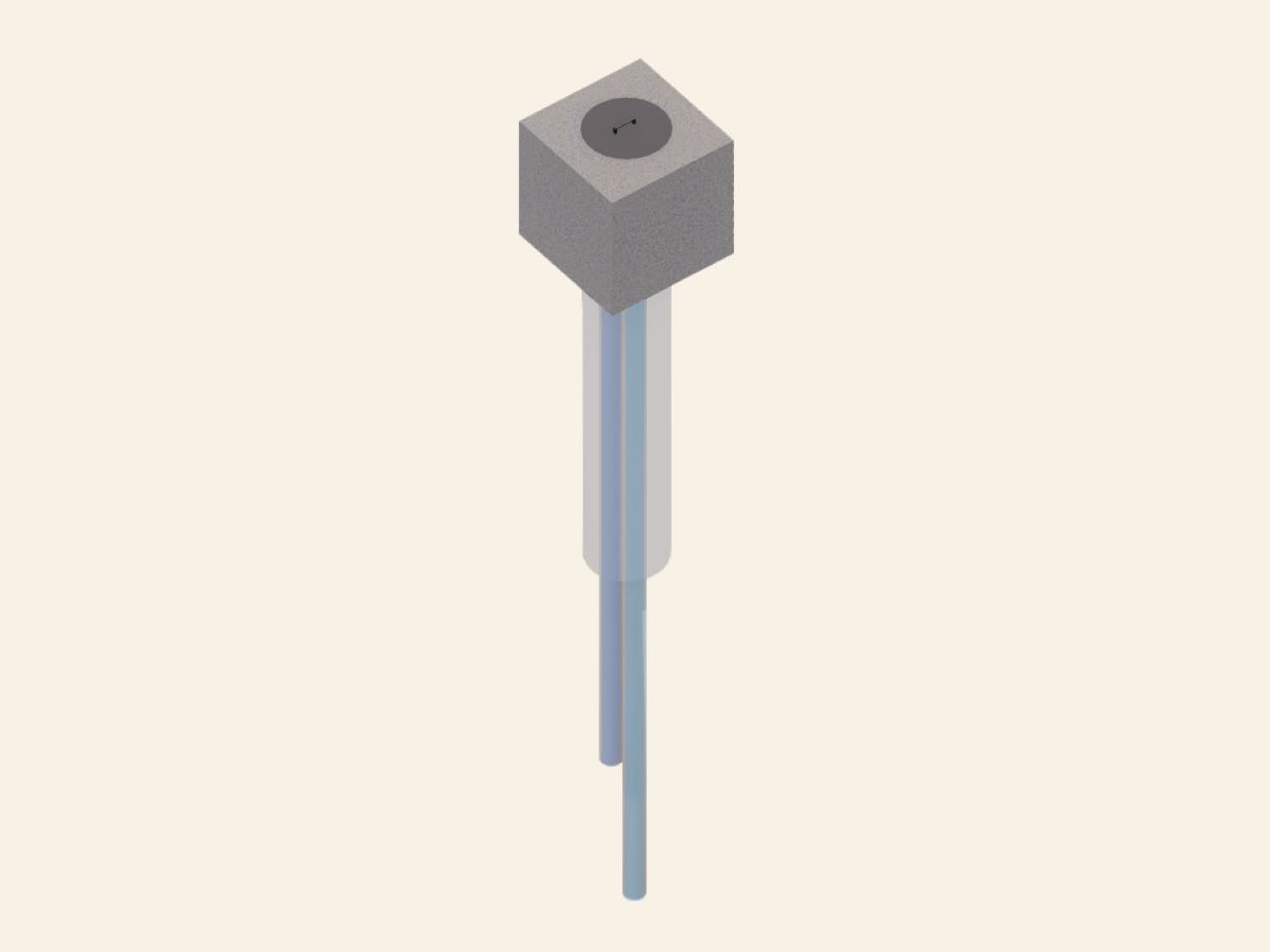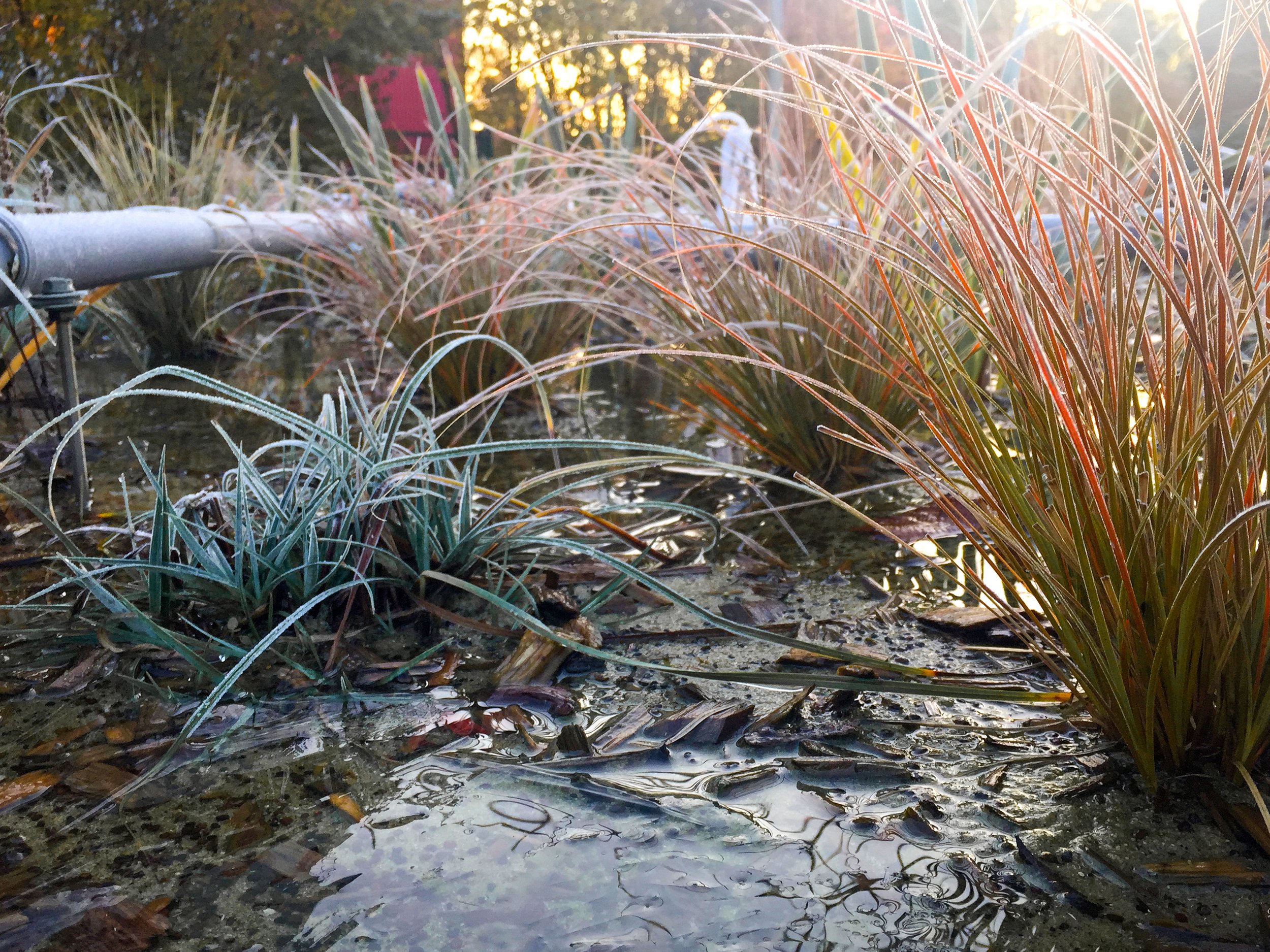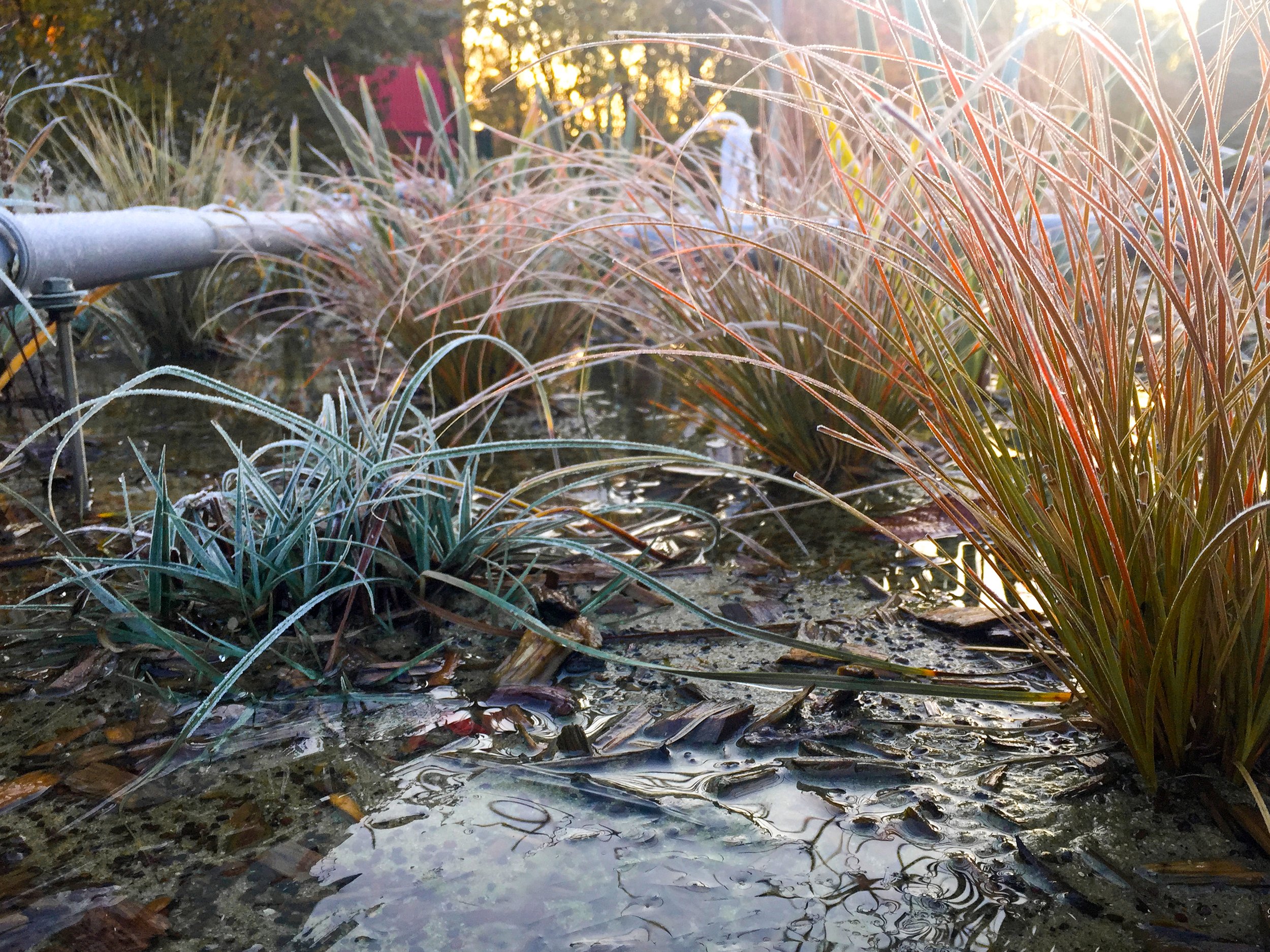-
Klant: Aquafin
Partners: Aquafin, Technische Universiteit Delft
Jaar: 2019-2020 -
Collection: ±280 m² (roof)
Buffer: ±10 m³
BlueBiofilter: 9 m² -
Water use: Testing
Project phases:
Design
Product Delivery
Operation & Monitoring
FieldFactors is geïnspireerd door de natuur
Wij combineren ontwerp, engineering, waterwetenschap en technologie, met als doel de stedelijke watercyclus te verduurzamen.
-

BlueBiofilter
-

BlueWell
De oplossing in een notendop
-
Waarom
Aquafin’s R&D campus in Aartselaar, Belgium, was selected to test nature-based solutions for stormwater management in the context of water quality challenges and climate adaptation. As part of the BlueBloqs Demonstration Project, funded by EIT Climate-KIC, the site provided a controlled environment to test water reuse technologies.
One specific concern in the region is the presence of emerging pollutants like PFAS, with nearby waste incineration possibly contributing to contamination. Aquafin partnered with FieldFactors and TU Delft to evaluate BlueBloqs as a decentralized treatment system capable of removing such substances, anticipating increasing regulatory scrutiny across Europe.
-
Wat
A pilot BlueBloqs system was installed to collect and treat stormwater runoff from a lab building's roof. A 10 m³ underground buffer stored the water before it was treated through a 9 m² BlueBiofilter. The system's design allowed flexible testing of various pollution scenarios, first using synthetic stormwater to simulate worst-case urban runoff, then shifting to actual rooftop rainwater.
-
Hoe
The water was monitored through real-time sensors and periodic lab analyses. TU Delft designed the synthetic stormwater to include common pollutants, nutrients, heavy metals and organics, ensuring consistent input conditions for performance comparison. Once baseline results were established, the system switched to actual rainwater for further validation.
"Onderzoekers in de R&D-faciliteit van Aquafin zijn zeer toegewijd aan het vinden van innovatieve oplossingen om het waterbeheer in Vlaanderen te verbeteren. Ze gaven ons nuttige inzichten over het potentieel van BlueBloqs en waar die kan helpen om belangrijke klimaatuitdagingen aan te pakken."
Long-term impact
Beyond its technical results, the pilot served as a proof of concept for regional implementation. The findings were used in a TU Delft study assessing the feasibility of BlueBloqs systems across Flanders. The project helped pave the way for new applications of circular water technologies in both urban and industrial settings, responding to growing needs for resilient and sustainable infrastructure.



